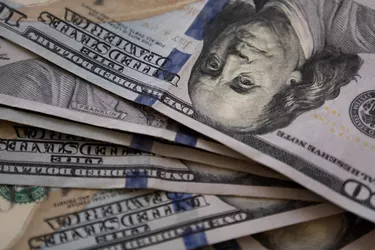
A medium of exchange is an intermediary instrument that facilitates the sale, purchase and trade of goods and services. To do so, the medium of exchange must represent a standard value. What's more, each party to a transaction must accept that medium as a valid one.
An accepted medium of exchange is the foundation of monetary systems in that its value can be accurately gauged and consumers can rely on it to budget and gauge an asset's value and measure supply and demand. Today, currency is the accepted medium of exchange across the globe.
Video of the Day
Video of the Day
The Function of a Medium of Exchange
The efficiency of an economy is due in large part to the use of a medium of exchange. This efficiency underscores the growth in economic activity.
Consequently, currency as a medium of exchange is a good alternative to a barter system whereby trade depends on one participant offering a good that another party wants. The likelihood of a metal exchange is fairly low. But if a medium of exchange, such as gold, exists, a producer will sell her product and use the gold she receives to purchase the product of another.
Effect of Money as a Medium of Exchange
With cash as the medium of exchange, the market power of the seller and buyer equalizes. In the market, the seller offers a good or service for a certain price. In turn, the consumer accepts the offer by using her cash to pay for the good.
The seller's offer and the buyer's acceptance lend market predictability. The buyer demand, which is confirmed via the cash payment for a product, informs the producer's decision-making processes as to production quantity and product pricing. In turn, the producer's offer informs the buyer's budgeting process.
Consider also: Venmo & Cryptocurrency
Advantages of Money as a Viable Medium of Exchange
This offer and acceptance process depends on a viable medium of exchange, such as currency. Without it, the valuation of products and services becomes more difficult. Thus, the offer and acceptance process becomes impractical, even impossible.
Likewise, market participants will be unable to measure supply and demand. Consequently, markets become chaotic and inefficient. For instance, prices rise and fall in response to consumer concerns about the scarcity or pricing of products, which leads to hoarding and erratic or diminished supply.
Money as a Unit of Account
A primary advantage of money as a medium of exchange is that money acts as a unit of account by providing a common measure of the value of goods and services that individuals and entities exchange. Knowing the price of a good allows the buyer and seller to decide the volume of a product or service to supply and purchase.
Money as a Store of Value
For money to serve as a medium of exchange, it must maintain its value over time. As a store of value, money maintains its value as a unit of exchange. While money depreciates with inflation, it is more liquid than other stores of value because it's readily accepted as a medium of exchange. What's more, money is easily transported and is available in many denominations.
Alternative Mediums of Exchange
In a time of economic duress, such as a period of cash shortages that follow bank failures, a government may introduce a new currency. For instance, early in the 20th century, some companies issued scrip to pay employees.
Once employees receive the scrip, they exchange it for goods and services. An individual could also redeem the scrip once the valid currency is once again available.
Consider also: Is Bitcoin Still a Player?
Example of the Introduction of New Currency
In 2006, local governments introduced currencies to spur sustainable, economic growth in their regions. For instance, the local government introduced BerkShares in Massachusetts in 2006. About 400 local businesses came to accept the currency.
The BerkShares are pegged to the U.S. dollar, but the banks issue the currency at a discount: one BerkShare is equivalent to 95 cents.